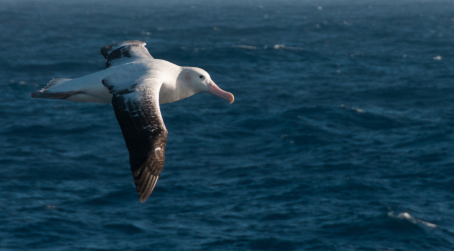The International Collaboration Effort for Improving Paleoclimate Research in the Southern Ocean (ICEPRO) aims to improve our understanding of past ocean-ice-earth interactions by linking modern observations and paleo-records by facilitating transnational collaborations on (paleo)environmental studies in the Southern Ocean. To reach this goal, ICEPRO will bring together international partners to coordinate and harmonize joint research activities in terms of sampling strategies, methodologies, proxy calibrations and the development of future Antarctic expeditions.

ICEPRO (international collaboration for paleoclimate research)
About
Each year, several oceanographic cruises are conducted around Antarctica to investigate recent and past climate variability. However, most of these expeditions are performed independently in the areas of operations of the different national programs, even though their objectives are relatively similar: to get the best combination of proxy records to robustly constrain paleoclimate fluctuations (e.g., ocean temperature, sea ice conditions, ice shelf dynamics, position and strength of the Antarctic Circumpolar Current, Southern Westerlies and Polar Frontal Zone, Southern Ocean water column structure, open water and sea ice- associated phytoplankton productivity, nutrient cycles) during various periods of time. To advance in such understanding, it is therefore urgent to (1) improve the coordination of the sampling efforts by the different programs and develop new ones; and (2) apply common and comparable methodologies to aid the development and interpretation of paleorecords.
While the need to conduct coordinated/collaborative multidisciplinary measurements is the only way forward to advance our understanding of the complicated ocean-ice-earth interactions, as already extensively mentioned within different national and international global initiatives, its concrete application, especially in the Southern Ocean, remains limited. For instance, two PAGES (Past Global Changes) working groups, CLIVASH2K and C-SIDE, one ongoing SCAR Research Programme, INSTANT, and SCAR SCOR-SOOS aim to disentangle the different records, identify the main drivers leading to the reconstructed climate variability over the last 2,000 years and older records, along with their forcings (e.g. the Southern Annular Mode (SAM), ENSO (El Niño/Southern Oscillation), the Interdecadal Pacific Oscillation (IPO)), and the Antarctic’s contribution to sea level. In their respective reviews, each working/research group mainly lists all the existing proxy-based records and their associated uncertainties in the SO and reports on the gaps in our understanding of the different SO processes. They also point to the need for increasing partnerships on field campaigns. However, none of these working groups/research programs include a plan to facilitate a coordinated logistical and methodological approach to improve paleoclimate proxy calibration as the one proposed by the ICEPRO.
In this context, the main objective of ICEPRO is to go one step further by developing existing collaborations and creating new connections among several partners from Australia, Europe, India, Japan, New Zealand, South Korea, UK, USA and any other interested countries (e.g. China, Brazil) in close interactions with representatives and coordinators of CLIVASH2K (E. Thomas, C. Allen, A. Moy, B. Stenni, Y. Yu) and C-SIDE (K. Kohfeld, H. Bostok, Crosta, X., A. Leventer, V. Lowe, K. Meissner). All these research groups regularly cross the Southern Ocean through different transects and therefore have the opportunity to sample the water column and marine sediments spanning at least the last 2,000 years in their own study areas. Such collaborative work, which also aims to promote exchange of scientists among the different cruises, and to involve early career researchers, could therefore cover most of the important regions of the SO, thus allowing a better monitoring of modern environmental conditions, and ultimately improve calibration of the geochemical, sedimentological and micropaleontological tools commonly used for paleoreconstructions.
Terms of Reference
The main goal of ICEPRO is to better understand past and present mechanisms that affect SO physical drivers, biogeochemical composition, and ecosystem structure and dynamics. As a SCAR Action Group, ICEPRO aims to:
- Bring together a wide scientific community coordinating their effort to provide robust paleoproxy calibration;
- Generate accurate and widely spread paleorecords spanning the last centuries and millennia;
- Closely cooperate with ice core and modelling scientists to define as much precise as possible the climatic baseline that will be used for future projections.
News
News and Updates from the ICEPRO community
Members
Contact
The leaders of ICEPRO are Dimitris Evangelinos and Johan Etourneau.
Steering Committee
| Johan Etourneau | UMR EPOC, EPHE/PSL Research University / Bordeaux University | France |
| Dimitris Evangelinos | Imperial College London | UK |
| Carlota Escota | Instituto Andaluz de Ciencias de la Tierra, CSIC | Spain |
| Amy Leventer | Colgate University | USA |
| Julianne Müller | Alfred Wegener Institute | Germany |
| Linda Armbrecht | Institute for marine and Antarctic Studies (IMAS), University of Tasmania | Australia |
| Guiseppe Cortese | GNS Science | New Zealand |
| Jung-Hyun Kim | Korea Polar Research Institute (KOPRI) | Korea |
| Minoru Ikehara | Kochi University | Japan |
| Rahul Mohan | National Centre for Polar and Ocean Research (NCPOR) | India |
| Andrès Rigual | Salamanca University | Spain |
| Laura de Santis | OGS Trieste | Italy |
| Erin McClymont | Durham University | UK |
| Rob Dunbar | Stanford University | USA |
Resources
Publications, Data and Links of interest to the ICEPRO community.

